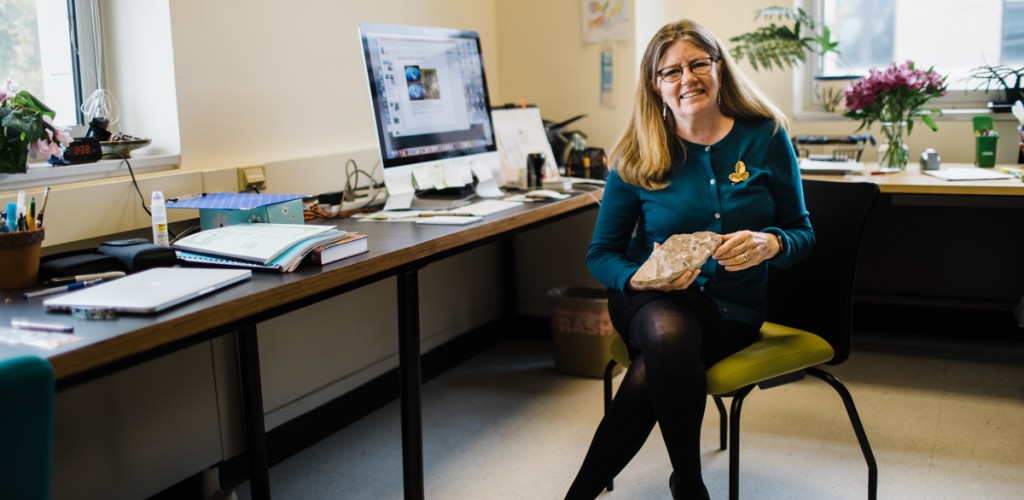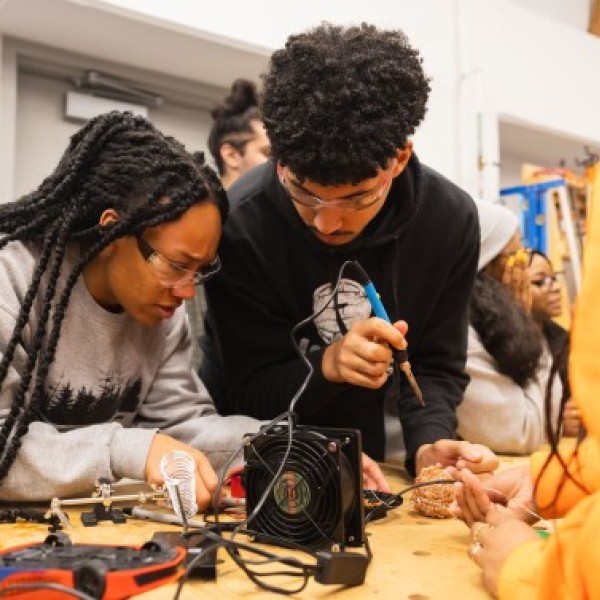Maria A. Gandolfo, associate professor, Plant Biology Section of the School of Integrative Plant Science
Academic focus: Evolutionary biology, evolution of Southern Hemisphere floras throughout time, plant systematics, plant evolution and plant anatomy. Biotic interactions in the fossil record. My lab research group focuses on Patagonia and Antarctica because their past geographical position was the portal for understanding plant evolution, diversity, and biogeopgraphical models on all southern continents.
Previous positions: Senior research associate, 2004-18; curator of the Cornell University Plant Anatomy Collection, 2009-present; research associate 1998-2004; postdoctoral associate, 1994-98; Liberty Hyde Bailey Hortorium, Plant Biology Section, SIPS, Cornell University. Lecturer, Facultad de Ciencias Exactas y Naturales, Universidad de Buenos Aires, Argentina, 1990-93
Academic background: B.S. Biology, Universidad CAECE, Buenos Aires, Argentina, 1983; M.S. Systematics and Ecology, Universidad CAECE, Buenos Aires, Argentina, 1985; Ph.D. Biology (Paleobotany and Geology), Facultad de Ciencias Exactas y Naturales, Universidad de Buenos Aires, Argentina, 1994.
Last books read: “A leaf in the storm” by Lin Yutang and “Bodies and Souls” by Maxence Van der Meersch.
What do you do when not working? I love to spend time with my daughter Sarah, my husband Kevin, and our four-legged friends, Acorn and Maggie. When I have time I enjoy running. Several years ago, I started quilting with an extremely nice group of ladies from my neighborhood; every year we work on a quilt that it is raffled off at our community fair, The Ellis Hollow Fair.
What gets you out of bed in the morning? As a Latina woman, I walk in the shoes of a minority on a daily basis, and I am very attuned to the issues of diversity and inclusion that many students, staff and faculty face each day. I am a “first generation college student”; my grandmother only finished third-grade and my mother was only able to go to elementary school, but both of them knew about the significance of getting an education in life so they instilled the importance of education to my siblings and myself. Going to college was not optional; it was something we had to do. I received a Masters and a Ph.D. degree in a field dominated by men. This is my story and this is the story I tell my students the first day of classes since I began. I do this to let them know that everything is possible if you put in the time, you study and ask for help: I am a living example, as I stand in front of them lecturing, of their own potential for success. I believe that this type of role model is essential for students who have faced difficulties, perhaps not had positive role models, and may feel inadequate or overwhelmed by the pressures and demands of the university environment. I am passionate about inclusiveness, and I am committed to working towards achieving equity and enhancing diversity not only for students but also for colleagues and staff members.
Current research projects? Too many to list, but my favorite ones are “Digitalization of the Cornell University Plant Anatomy Collection (CUPAC)” and “Evolution of flowering plants in Patagonia.”
Current outreach/extension projects? I am working on two outreach projects now. One, which is short term, is a booth at “Judy’s Day Learning Festival” an event organized at Cornell Botanic Gardens. The booth will feature, among other things, plant fossils that date from approximately 400 millon years ago to modern times. The other project is a long term. This project is the website for CUPAC, which is upgraded constantly; we have more than 10,000 images of plant anatomy sections that colleagues from around the world consult for research, teaching, and publications.
What are three adjectives people might use to describe you? Caring, hardworking and easy going.
Course you’re most looking forward to teaching? Plants and People! In this course students learn how indispensable plants are in almost every instances of our lives. The class includes lots of on-hand activities such as baking bread, preparing peanut-butter and hummus, and brewing beer.
If you had unlimited grant funding, what major problem in your field would you want to solve? I would search for the first flowering plant to ever appear in the fossil record, and see if we could solve Darwin’s Abominable Mystery: the origin of the flower.
What most excites you about Cornell CALS? I have worked at Cornell for the last 25 years of my life, and I can certainly say that what excites me the most about CALS are the diversity of research programs, the academic freedom, and the wealth of classes students can take.





